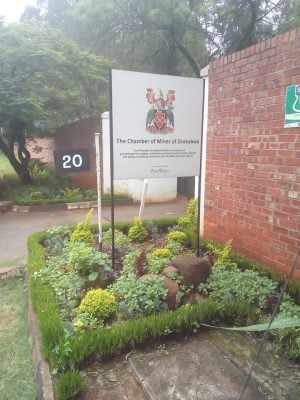The Chamber of Mines yesterday released the State of the Mining Industry Report, Prospects for 2022 which shows increased confidence in the sector’s outlook by mining executives.
The report, which comes out annually, gives an insight into the challenges and prospects for the capital-intensive mining sector – the largest generator of foreign currency for the economy.
According to the report, notable among the positive sentiments include optimism about commodity price outlook, improvement in capacity utilisation and anticipated mineral output growth.
On the negative side, mining executives expect the investment environment to be depressed, characterised by high costs of capital.
The executives anticipate foreign currency constraints and infrastructure deficits to persist in 2022.
They expect the fiscal framework to remain sub-optimal. This, the executives said, will undermine viability prospects.
The issues include high royalty beneficiation taxes, higher environmental management levies, misaligned Rural District Council charges.
Respondents in the PGMs and lithium sectors bemoaned the current beneficiation framework indicating that most potential investors view it as undermining projects net present value and resultantly some investors have rejected potentially viable projects, the report said.
“The PGMs producers indicated that they are currently engaging the government for an optimal PGMs beneficiation framework. Among the key recommendations cited by platinum producers are removal of beneficiation taxes and the introduction of beneficiation incentives to accelerate capital spending on beneficiation in the sector,” the report said.
It said respondents in the lithium sector raised concerns on beneficiation tax on petalite which they reported that they would have fully beneficiated and will be awaiting conversion into final products.
Lithium producers are looking forward to the removal of the tax on the fully beneficiated petalite.
Diamond producers said the royalty for diamonds at 10% is still one of the highest in the world and is “undermining the viability of diamond producers”. The executives in the sub-sector expect the government to review the royalty in line with best practices.
That the sector is a key player in the economy cannot be understated and the ball is in the court of fiscal authorities to nurture the mining sector which is the goose that lays the golden eggs.
Mining is one of the key sectors of the economy and its contribution to GDP has been on the increase, reaching 11.8% last year from 6.5% in 2016. The sector is projected to contribute 11.3% to GDP this year.
The sector’s contribution to export receipts is projected at 77% this year from 64% in 2016. The sector surrenders 40% of its export receipts which is used to fund the foreign currency auction system.
Despite the sector’s contribution to the economy, it seems to be getting the short end of the stick from fiscal and monetary authorities.
The government, however, sees the sector hitting US$12bn by 2023 on the back of increased exploration, enhanced investment, capacity building, increased productivity and value addition, among others.
The sector is projected to hit US$4.4bn this year. Critics say the US$12bn target will become a pipedream if Zimbabwe does not address housekeeping issues such as fine-tuning the fiscal regime.
.png)




